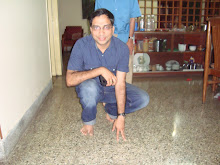It is the last week of July, and I am willing the morning air into reducing its bite. It’s just a matter of another five weeks and it will officially be spring. I am thankful I live in Sydney, and not Melbourne or Adelaide with their more severe winters. Here the lows are typically in the high single digits, and the highs are in the mid teens. Not much worse than Delhi, actually. But it is still cold enough to make one gingerly ease oneself down on the cold toilet seat with a prayer on the lips.
This winter, like the ones before, I have heard complaints about how cold it has been. When I go to India, folks there complain about how this year’s summer has been particularly bad. No doubt climate change has some role to play in this. But I suspect this is also due to the “negative reinforcement of recency” effect.
People tend to highlight the bad more than the good, and when the bad occurs quite recently, it gets amplified. Similarly when something bad fades into distant memory, it seems not so terrible after all. Let a few more years pass, and you are absolutely convinced that while life today isn’t all that bad, it isn’t a patch on that golden period in your life many years ago. Of course, when you were actually living through that period, someone suggesting that it was “golden” would have probably been greeted with a hollow laugh.
During my years in engineering college, I couldn’t wait to get out of it. I was generally uninterested in the lectures I attended, knowing they wouldn’t be of much use in later years, and was keen to get on with life in the “real” world outside. Now I look back on those years with fondness, particularly for the friendships formed, and some character building lessons learnt.
This sentiment was echoed in a recent piece by the ex Finance Minister of Australia, Lindsay Tanner, who recently retired from politics, rather prematurely, to devote time to family. Upon his retirement, the Opposition Leader, Tony Abbott, remarked that Tanner had been one of the “finest ministers” in the Labour Cabinet. Tanner was surprised that Abbott had never so much as hinted at this admiration during the years that he held the ministerial post. Only partly in jest, I presume, Tanner goes on to suggest that in years from now, he and Wayne Swan, whose economic policies have been so vilified by the Liberal Party, will be held out as shining examples of economic management by their opposing political party.
It is election season in Australia, and everyone is talking about how boring the leaders of the two main political parties are, how alike their policies are, and generally how disappointing the whole political scenario is. “Where are the visionaries?”, they lament. ”Where are the big ideas that will take Australia forward?”, is their plaintive cry. Presumably they are talking of people like Bob Hawke and Paul Keating, the icons of modern Australian politics. Somehow, it’s hard to imagine that when Bob Hawke was running his election campaigns twenty-thirty years ago, people would have been screaming out in delight “What a visionary! What brilliant ideas to move Australia forward!”
Earlier this year, we had a wonderfully mild summer. Temperatures were significantly moderated in relation to previous years, and there weren’t more than a couple of days (and I do stay at home on weekends, even if I spend the week in an air-conditioned office), when I felt the absence of an AC at home. Not surprisingly, I didn’t hear too many people say, “What a nice summer it’s been. So much better than last year.”
Subscribe to:
Post Comments (Atom)

No comments:
Post a Comment